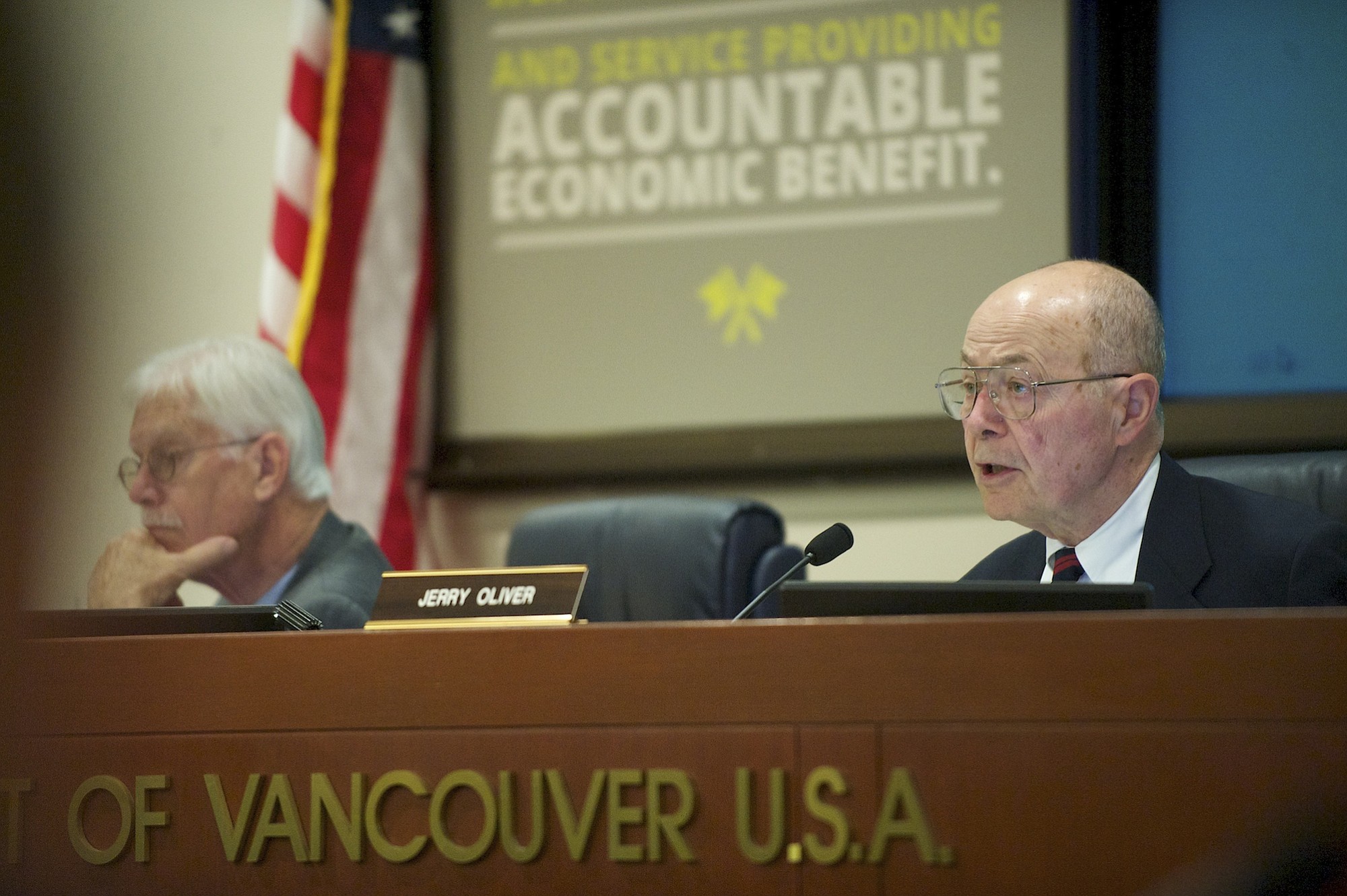A Vancouver resident has filed two petitions with the Clark County elections office seeking to recall from office Port of Vancouver commissioners Jerry Oliver and Brian Wolfe.
In documents filed Tuesday, Christopher Clifford accuses the two commissioners of malfeasance, misfeasance and violation of the oath of office, including that they “knowingly violated” Washington’s open public meetings law in discussing in closed-door executive sessions a proposal to build what would be the nation’s largest rail-to-marine oil transfer terminal.
Reached by phone Wednesday, Oliver said he hadn’t seen the petition yet and preferred to have the document in hand so he could “read it and reflect on it” before saying anything about it. Oliver accepted The Columbian’s offer to provide him with an emailed copy of the petition, but did not offer any further comment after receiving the petition.
The newspaper left messages on Wolfe’s office and cell phones seeking comment. The messages were not returned by the end of the workday Wednesday.




